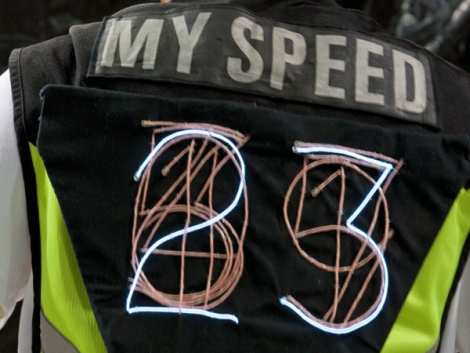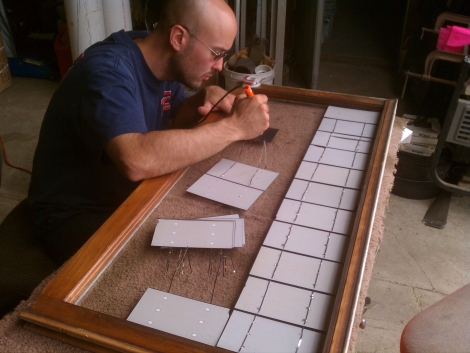
[Mykle Hansen] is an avid cyclist, and safety is a big concern for him. He says that bicyclists often receive a lot of honks and grief from passing motorists because they perceive them as moving far slower than they really are. According to [Mykle], this misjudgment can result in “right hook” collisions, which kill several bicyclists each year. To increase his nighttime visibility and to give drivers a better idea of how fast he’s traveling, he constructed a bicycling vest that displays his current speed in large 7-inch tall numbers.
He uses an off-the-shelf speedometer to get his current speed, feeding that data to an Arduino tucked inside his vest. The Arduino then lights the appropriate EL wire digits to relay his speed to motorists behind him.
It seems to work pretty well if the video below is any indication, and there’s no denying that it will catch a driver’s attention at night. If you’re thinking of making one for yourself, check out his Make:Projects page for a complete look at how it was put together.
Continue reading “Light Up Biking Vest Shows Impatient Drivers How Fast You Are Going”













